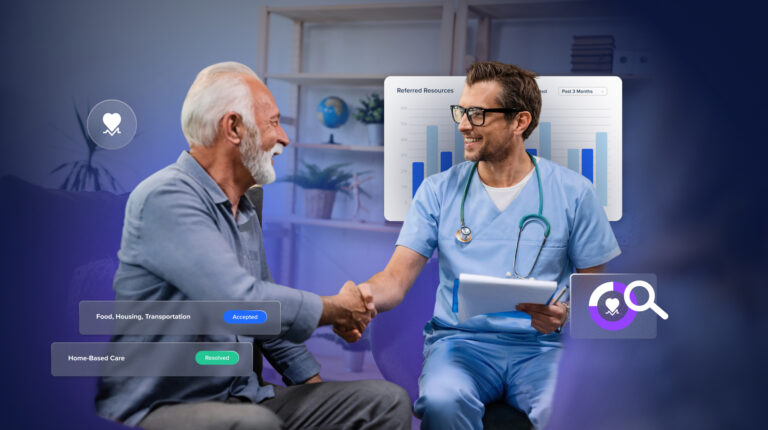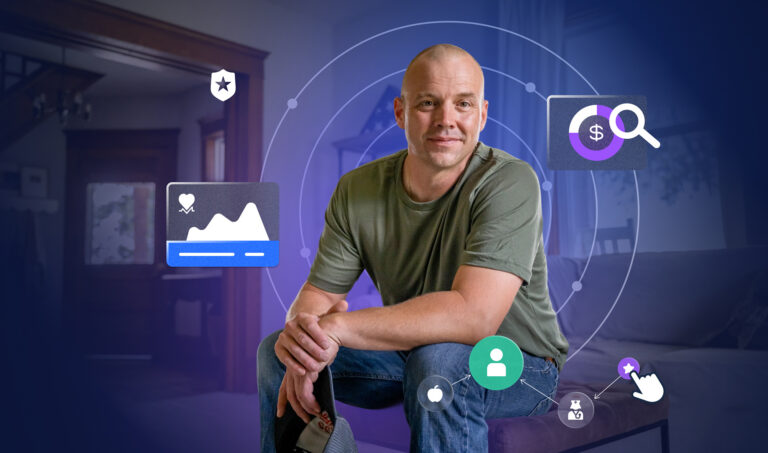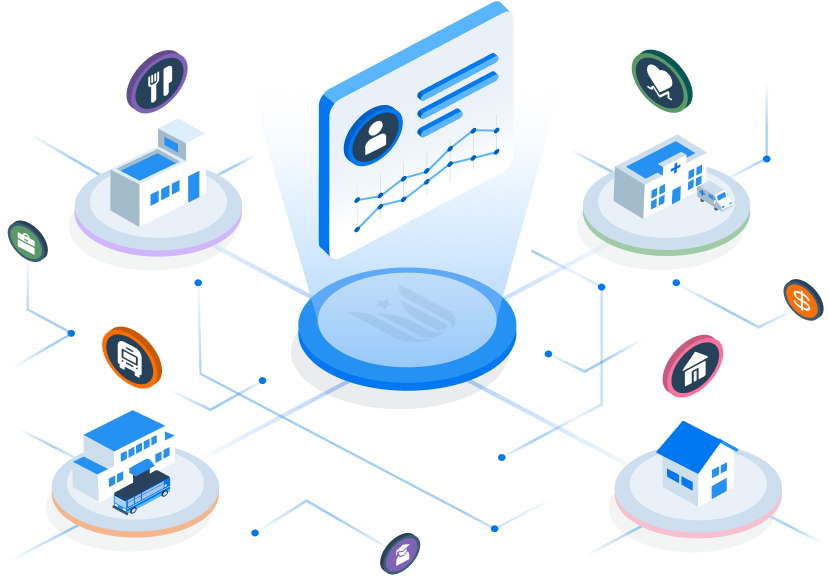How the Healthy Eating Pilot is Improving Food Security and Reducing HbA1C Levels in Upstate New York
The Healthy Eating Pilot Program in upstate New York was designed and implemented to tackle food insecurity among patients with Type 2 Diabetes (T2D) by connecting them to medically appropriate food assistance. Over the course of a year, this initiative, supported by Unite Us technology, engaged a network of more than 650 healthcare providers and achieved remarkable results in improving food stability and reducing A1C levels for those with T2D.
Background
In upstate New York, the dual challenges of Type 2 Diabetes (T2D) and food insecurity have emerged as significant public health concerns. The Finger Lakes region, like many other areas, has seen a growing number of individuals struggling to manage their T2D while facing the daily struggle of food insecurity. Recognizing the critical link between healthy nutrition and diabetes management, the Healthy Eating Pilot Program was created to connect food-insecure patients with T2D to medically appropriate food assistance.
The program, powered by Unite Us technology, ran from August 2023 to August 2024 and leveraged a comprehensive network of more than 650 healthcare providers.

“Our goal is to ensure everyone has access to high-quality care regardless of their ability to pay. We know that our diet impacts our overall health. So, we were thrilled to serve as a partner for this pilot which we know resulted in such a significant improvement for many of our patients. Our hope is for pilots like this to develop into long-lasting and sustainable programs which help everyone with the ability to lead a healthy lifestyle as a direct result of the provided information and resources.”
Dr. Linda Clark, Present and CEO, Jordan Health
Pilot Partners
 Jordan Health has provided community-focused healthcare for over 100 years and is one of the first five Federally Qualified Health Centers in the country. Jordan Health serves underserved and uninsured residents in Rochester and Canandaigua, delivering on its mission: To optimize health equity and well-being by providing innovative, comprehensive, integrated, and personalized healthcare of the highest quality with dignity and respect for all, regardless of ability to pay.
Jordan Health has provided community-focused healthcare for over 100 years and is one of the first five Federally Qualified Health Centers in the country. Jordan Health serves underserved and uninsured residents in Rochester and Canandaigua, delivering on its mission: To optimize health equity and well-being by providing innovative, comprehensive, integrated, and personalized healthcare of the highest quality with dignity and respect for all, regardless of ability to pay.
Foodlink i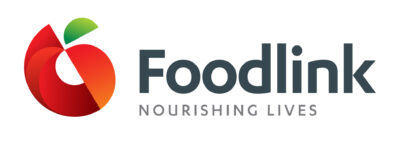 s the regional food bank in Rochester, serving as the hub of the emergency food system across a 10-county service area. Foodlink is a non-profit dedicated to ending hunger and building healthier communities by addressing both the symptoms and root causes of food insecurity. They served as the food assistance partner for this pilot program.
s the regional food bank in Rochester, serving as the hub of the emergency food system across a 10-county service area. Foodlink is a non-profit dedicated to ending hunger and building healthier communities by addressing both the symptoms and root causes of food insecurity. They served as the food assistance partner for this pilot program.
Challenge
Without a centralized infrastructure, successfully launching community-based initiatives like the Healthy Eating Pilot can be quite difficult. Identifying eligible individuals and coordinating referrals between various stakeholders quickly becomes a complex and inefficient process reliant on fragmented communication methods, such as phone calls, faxes, spreadsheets, and emails. The absence of a unified system makes it difficult to effectively connect those in need with available services.
Furthermore, a lack of robust technology impedes the ability to track the impact of these interventions. Tracking referral statuses, analyzing health outcomes, and managing reimbursements is also resource-intensive and challenging without integrated data collection and analysis tools. Overall, the absence of a technological infrastructure limits staff ability to demonstrate program effectiveness, secure sustainable funding, and scale vital community-based health initiatives.
Solution
Launched in 2023, the Healthy Eating Pilot program leverages flexibility within CMS’ 1115 waivers to partner with and reimburse CBOs for addressing the non-medical needs of Medicaid enrollees. Supported by Unite Us’ infrastructure for closed-loop referrals and reimbursements, the program demonstrates a new model for integrating social services into healthcare delivery.
With this infrastructure in place, Jordan Health staff conducted screenings for drivers of health directly in the platform to identify program eligibility. If a patient screened positive for food insecurity and gave consent to be treated, Jordan Health staff sent a secure, closed-loop referral to Foodlink and submitted an invoice for services delivered—all within the same system.

“This program has demonstrated how critical it is to have strong partnerships between community-based organizations and the healthcare system. Partnerships like this benefit the participants, improve health outcomes, and keep dollars circulating within local communities.”
Dr. Mitch Gruber, Chief Impact Officer, Foodlink
How It Works
 1. DOH screening conducted by Jordan Health nutrition staff
1. DOH screening conducted by Jordan Health nutrition staff
Jordan Health staff administers Accountable Health Communities (AHC) DOH Screener.
 2. Baseline Eligibility Assessment
2. Baseline Eligibility Assessment
If patient screens positive for food insecurity on AHC screener, they are eligible for participation. Jordan Health staff administer baseline assessment and submit invoice for reimbursement via Unite Us’ platform.
![]() 3. Refer to Foodlink via Unite Us
3. Refer to Foodlink via Unite Us
Patient is referred to Foodlink as a pilot participant and receives food assistance (either vouchers for a curbside market or foodbox deliveries) for six months. After six months of services, the case is closed in Unite Us. Jordan submits invoices for each voucher or foodbox via Unite Us for reimbursement.
![]() 4. Post Assessment Completed
4. Post Assessment Completed
Jordan Health staff outreach to patient and administer the pilot post assessment. They submit an invoice for each completed post assessment via Unite Us.
Impact
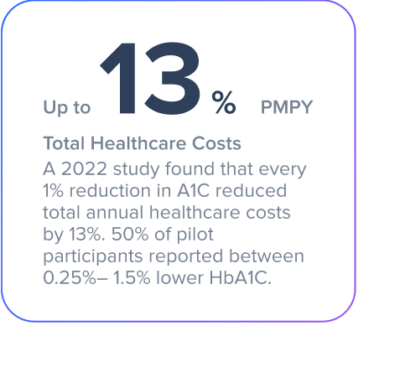 Healthy Eating Pilot participants completed longitudinal surveys at the start of the program and then again within 60 days post-pilot. Improvements were reported across every measure, including food insecurity and nutrition, quality of life, overall healthy days, and perceived stress. Notably, 50% of participants improved their A1C level, with an average reduction of .26%.
Healthy Eating Pilot participants completed longitudinal surveys at the start of the program and then again within 60 days post-pilot. Improvements were reported across every measure, including food insecurity and nutrition, quality of life, overall healthy days, and perceived stress. Notably, 50% of participants improved their A1C level, with an average reduction of .26%.


“We were thrilled to see the impact of this program on participants’ health outcomes. As a registered dietician, I teach our patients with T2D about the importance of healthy eating in managing their diabetes but I know they often lack the resources to buy the foods we recommend. This program addressed the critical issue of access to healthy foods and we saw improvements in overall health as a result.”
Colleen O’Brien, RD, Jordan Health
Driving Funds Back Into the Community:


“Whoever thought of the program did a very good job. It was very convenient to know I was getting fresh fruits and vegetables every two weeks.”
Pilot Participant
Lessons Learned
Three key lessons emerge from the results of the Healthy Eating Pilot Program:
Access to Nutritious Food Improves Health Outcomes: This initiative demonstrates that connecting food-insecure patients with T2D to medically-appropriate food assistance significantly improves health outcomes and reduces healthcare costs.
Addressing Non-Clinical Needs as a Healthcare Standard: As the current demand for community-based food programs grows, the healthcare industry must incorporate referrals to non-clinical services as a standard in their model of care—creating a need for sustainable CBO funding solutions to meet increased demand.
Technology is Key for Scalability and Impact: Increased demand for community-based care should be met with sustainable funding solutions. This includes:
- Strengthening multisector partnerships through formal closed-loop networks that generate real-time data to support targeted community investments.
- Providing technical infrastructure to support low-burden CBO invoicing and payment tracking.
About Unite Us
Unite Us is the nation’s leading software company bringing sectors together to improve the health and well-being of communities. We drive the collaboration to identify, deliver, and pay for services that impact whole-person health. Through Unite Us’ national network and software, community-based organizations, government agencies, and healthcare organizations are all connected to better collaborate to meet the needs of the individuals in their communities.

